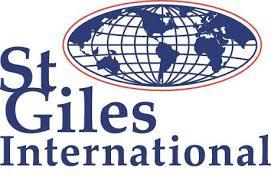
Project Risk and Scheduling Management (ECCM Workshops 1, 2) – Certified Program
Course ID: 2510200101354EGI
Course Dates : 20/10/25 Course Duration : 10 Studying Day/s Course Location: London, UK
Language: Bilingual
Course Category: Professional and CPD Training Programs
Course Subcategories: Leadership and Management Excellence
Course Certified By: * Projacs Academy
* Professional Training and CPD Programs
Certification Will Be Issued From :
KSA
Course Fees: £8,895.11
Vat Not Included in the price. VAT may vary depending on the country where the course or workshop is held.
Click to Pay
Date has passed please contact us Sales@e-s-hub.com
Course Information
Introduction
In the dynamic landscape of project management, the ability to effectively manage risk and scheduling is fundamental to achieving project success. Projects, regardless of their scale or industry, are inherently subject to uncertainties, resource constraints, and evolving stakeholder expectations. Poorly managed risks can lead to delays, cost overruns, and even project failure, while inefficient scheduling can disrupt workflows, erode team morale, and compromise deliverables. This course addresses these challenges by equipping participants with robust tools, frameworks, and methodologies to proactively identify, assess, mitigate, and monitor risks while optimizing project schedules.
The Project Management Institute (PMI) emphasizes that effective risk management accounts for nearly 90% of a project’s success, yet many organizations struggle to integrate systematic risk and scheduling practices into their workflows. A common gap lies in the misalignment between theoretical knowledge and practical application. For instance, a construction firm may identify potential weather-related delays but fail to implement contingency plans or adjust timelines accordingly. Similarly, an IT project might overlook critical dependencies between tasks, leading to bottlenecks during execution. By bridging this gap, the course empowers participants to navigate complexities with confidence and precision.
Drawing on established frameworks such as PMBOK® (Project Management Body of Knowledge), PRINCE2®, and Agile methodologies, the program delves into both traditional and adaptive approaches to risk and scheduling management. Participants will explore techniques like Monte Carlo simulations for probabilistic risk assessment, Critical Path Method (CPM) for schedule optimization, and Earned Value Management (EVM) for performance tracking. These methodologies are not only academically rigorous but also widely adopted across industries, ensuring that the course content aligns with global best practices.
Consider the case of a multinational pharmaceutical company launching a new drug. The project faced significant delays due to unforeseen regulatory changes and supply chain disruptions. By implementing a structured risk management plan, including scenario planning and buffer allocation, the company was able to recover lost time and meet its launch deadline. Such real-world examples underscore the transformative impact of mastering risk and scheduling management. Whether you work in engineering, healthcare, finance, or technology, the principles taught in this course are universally applicable and highly valuable.
For organizations, investing in employee training in risk and scheduling management translates into measurable benefits. Improved project outcomes lead to enhanced client satisfaction, reduced operational costs, and increased profitability. On an individual level, professionals who master these competencies position themselves as indispensable assets within their teams, opening doors to leadership roles and career advancement. Moreover, certification in this domain serves as a testament to one’s expertise, enhancing credibility and marketability in a competitive job market.
Ultimately, this course is designed to equip participants with the skills and insights needed to thrive in an increasingly complex and uncertain business environment. By blending theory with hands-on practice, it fosters a deep understanding of how to anticipate challenges, make informed decisions, and drive projects toward successful completion. Whether you are a seasoned project manager seeking to refine your skills or a newcomer eager to build a solid foundation, this program offers a comprehensive pathway to excellence.
Objectives
By attending this course, participants will be able to:
Analyze potential risks using qualitative and quantitative methods, including SWOT analysis and fault tree analysis.
Evaluate project schedules using tools such as Gantt charts, PERT diagrams, and Critical Path Method (CPM).
Design risk mitigation strategies tailored to specific project contexts and stakeholder needs.
Implement scheduling adjustments based on real-time data and performance metrics.
Apply Earned Value Management (EVM) techniques to monitor project progress and forecast outcomes.
Develop contingency plans that address high-impact, low-probability events.
Synthesize lessons learned from past projects to enhance future risk and scheduling practices.
Who Should Attend?
This course is ideal for:
Project managers, team leaders, and coordinators responsible for delivering projects on time and within budget.
Risk analysts and compliance officers tasked with identifying and mitigating project vulnerabilities.
Engineers, architects, and construction professionals managing large-scale infrastructure projects.
IT professionals overseeing software development, system integration, or digital transformation initiatives.
These groups will find the course invaluable because it provides actionable insights and practical tools to address the unique challenges they face in their respective fields. While prior experience in project management is beneficial, the course is structured to accommodate intermediate learners who have a foundational understanding of project workflows and terminology.
Training Method
• Pre-assessment
• Live group instruction
• Use of real-world examples, case studies and exercises
• Interactive participation and discussion
• Power point presentation, LCD and flip chart
• Group activities and tests
• Each participant receives a 7” Tablet containing a copy of the presentation, slides and handouts
• Post-assessment
Program Support
This program is supported by:
* Interactive discussions
* Role-play
* Case studies and highlight the techniques available to the participants.
Daily Agenda
The course agenda will be as follows:
• Technical Session 08.30-10.00 am
• Coffee Break 10.00-10.15 am
• Technical Session 10.15-12.15 noon
• Coffee Break 12.15-12.45 pm
• Technical Session 12.45-02.30 pm
• Course Ends 02.30 pm
Course Outlines
Foundations of Risk Management
Overview of project risk management principles.
Types of risks: Known vs. unknown, internal vs. external.
Introduction to risk identification techniques.
Role of stakeholders in risk management.
Day 2:
Risk Assessment Frameworks
Qualitative risk assessment: Probability and impact matrices.
Quantitative risk assessment: Monte Carlo simulations.
Tools for prioritizing risks.
Case study: Risk assessment in a manufacturing project.
Day 3:
Fundamentals of Project Scheduling
Key concepts: Milestones, dependencies, and constraints.
Introduction to Gantt charts and task sequencing.
Understanding float and slack in project timelines.
Identifying critical paths in project schedules.
Day 4:
Advanced Scheduling Techniques
Program Evaluation and Review Technique (PERT).
Resource leveling and allocation strategies.
Using software tools for scheduling automation.
Exercise: Building a project schedule from scratch.
Day 5:
Risk Mitigation and Response Planning
Strategies for risk avoidance, transfer, and acceptance.
Developing risk response plans.
Contingency planning for high-impact scenarios.
Real-world example: Managing risks in a disaster recovery project.
Week 2
Day 6:
Monitoring and Controlling Risks
Establishing key risk indicators (KRIs).
Tracking risks through dashboards and reports.
Updating risk registers throughout the project lifecycle.
Workshop: Simulating risk monitoring processes.
Day 7:
Performance Measurement and EVM
Basics of Earned Value Management (EVM).
Calculating Schedule Variance (SV) and Cost Variance (CV).
Forecasting project completion dates and budgets.
Applying EVM to real-world projects.
Day 8:
Agile Approaches to Risk and Scheduling
Integrating risk management into Agile frameworks.
Sprint planning and backlog refinement.
Adapting schedules in iterative development cycles.
Group activity: Agile risk management simulation.
Day 9:
Compliance and Legal Considerations
Regulatory requirements for risk documentation.
Contractual obligations and liability clauses.
Ethical considerations in risk disclosure.
Case study: Legal implications of poor risk management.
Day 10:
Lessons Learned and Continuous Improvement
Conducting post-project reviews.
Documenting lessons learned for future projects.
Best practices for continuous improvement.
Final assessment and certification preparation.



















































